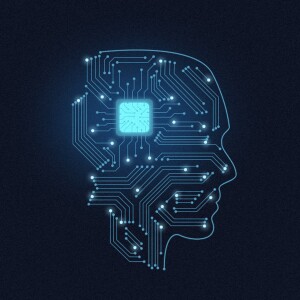
Thursday Dec 21, 2023
A Glimpse into Humanity’s Future: Homo Deus by Yuval Noah Harari
Homo Deus book summary
"Homo Deus: A Brief History of Tomorrow" is a book written by Yuval Noah Harari, published in 2015. The book explores the possible future of humanity, focusing on the concepts of human progress, evolution, and technological advancements.
Harari argues that human progress has primarily focused on overcoming basic hardships such as hunger, disease, and war. However, with the advent of new technologies, such as artificial intelligence and genetic engineering, humans are now able to overcome these hurdles and push the boundaries of what it means to be human. He delves into the idea that instead of becoming Homo sapiens (wise humans), we are on the verge of transforming into a new species called Homo deus (god-like humans).
The book is divided into three main sections. The first section discusses the progress of Homo sapiens and how our biological and social evolution has shaped our history. It explores various factors that have led to human dominance, such as the ability to create societies and belief systems.
The second section delves into the current technological advancements and their potential consequences. Harari examines the rise of artificial intelligence, bioengineering, and other emerging technologies. He raises questions about the impact of these advancements on the future job market, economic systems, and human happiness.
In the final section, Harari speculates about the future of humanity as Homo deus. He explores possible scenarios, such as a world where human desires and emotions are manipulated by algorithms, where consciousness can be uploaded into computers, or where biological limitations can be overcome through genetic engineering.
Harari challenges readers to consider the ethical and philosophical implications of these developments. He argues that as we become more god-like, we may also lose touch with our humanity and the value of human life.
Overall, "Homo Deus" provides a thought-provoking analysis of the potential future of humanity and the impact of technological advancements. It highlights the need for us to carefully navigate the challenges and opportunities that arise as we move towards a new era of human evolution.
Quotes of Homo Deus book
- "Humans increasingly see themselves as gods, possessing the power to shape and control their own destinies."
- "The rise of technology has given humans unprecedented levels of knowledge and control, allowing them to conquer disease, famine, and even death itself."
- "With the merging of biology and technology, humans are not only becoming gods but also creating new forms of life that blur the line between human and machine."
- "In this new world, data is the new god, and those who control the flow of data have the power to shape and manipulate society."
- "The concept of 'free will' is being called into question as algorithms and artificial intelligence increasingly make decisions on behalf of humans."
- "The pursuit of happiness and the search for meaning has shifted from religion to science, as humans strive to enhance their own well-being and extend their lives."
- "However, this newfound power and dominance also comes with great responsibility, as humans must grapple with the ethical implications of their actions and choices."
- "Ultimately, Homo Deus explores the notion that humans may be on the path to becoming obsolete, as advancements in technology and artificial intelligence threaten to surpass human capabilities."
- "The future of humanity lies in merging with technology, transcending our mortal limitations, and becoming something more than human."
- "In this brave new world, what it means to be human is being redefined, and the choices we make today will determine the course of our evolution."
What can we learn from Homo Deus?
- The future of humanity: The book explores the potential future trajectory of humanity, suggesting that Homo sapiens may soon be surpassed by a new species, Homo Deus. It provides insights into the possible paths humanity may take, such as technological advancements, the merging of humans with technology, and the potential consequences of such developments.
- The role of data and technology: Homo Deus emphasizes the increasing importance of data and technology in shaping our lives. It highlights the potential benefits and risks associated with the collection, analysis, and utilization of vast amounts of data in areas such as healthcare, governance, and personal decision-making. The book prompts us to critically think about how we navigate this new era of data-driven society.
- The distinction between intelligence and consciousness: The book delves into the distinction between intelligence, the ability to process information, and consciousness, the awareness and experience of being. It explores how advancements in artificial intelligence and algorithms can enhance our intelligence but raises questions about the potential loss of human consciousness or subjective experience in the process.
- Potential risks and ethical considerations: Homo Deus prompts us to consider the potential risks and ethical dilemmas associated with the future outlined by Harari. It explores issues such as surveillance, inequality, algorithmic decision-making, and the concentration of power in the hands of a few corporations or individuals. It encourages us to critically evaluate the impact of technological developments on various aspects of our lives.
- The need for a new moral framework: The book argues that as humanity moves towards a post-human future, we need to reconsider and redefine our moral framework and values. It challenges traditional notions of humanism and suggests the importance of incorporating new principles and ethical guidelines to navigate the complex challenges ahead.
Overall, Homo Deus provides a thought-provoking exploration of our potential future as a species, urging us to critically examine the impact of technology, data, and the choices we make as individuals and societies.
No comments yet. Be the first to say something!